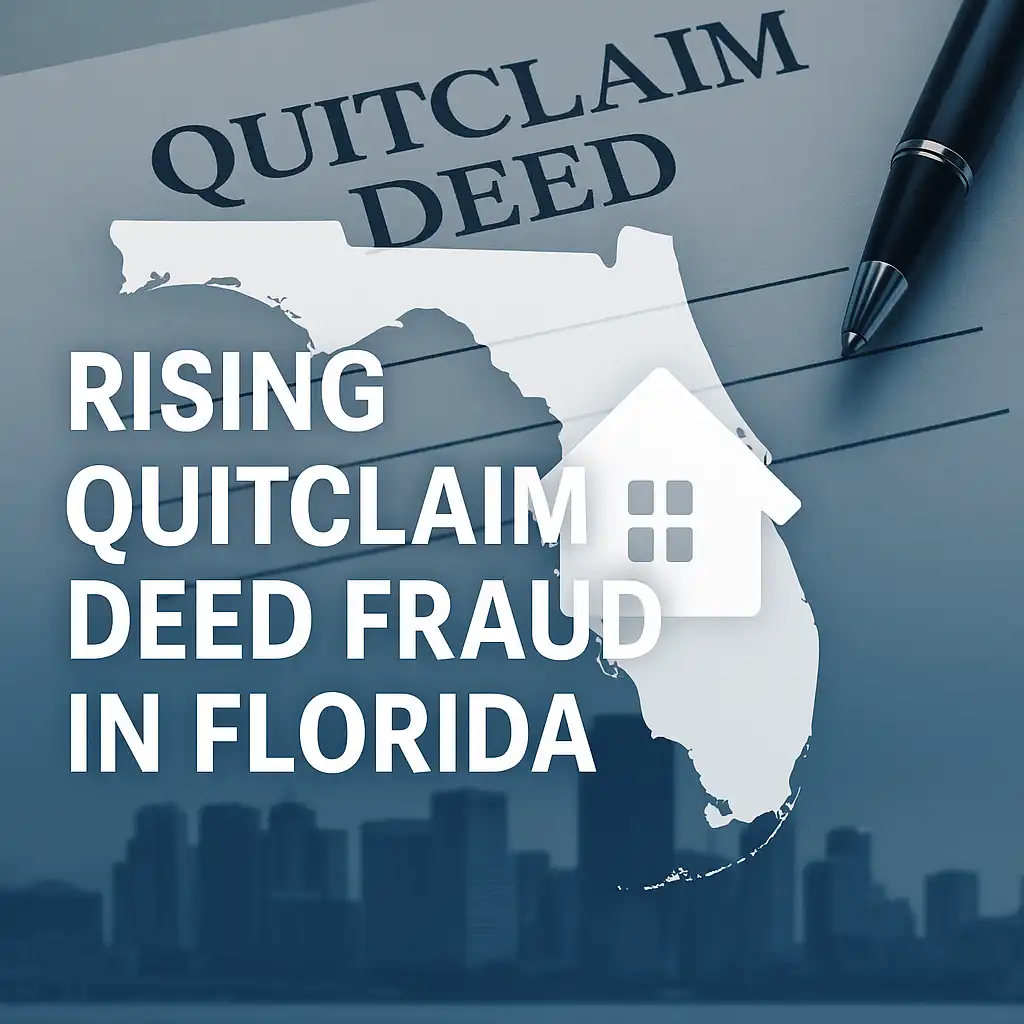
Florida has seen a sharp rise in property fraud over the last several years, with a particular increase in quitclaim deed-related scams. In many cases, fraudsters forge quitclaim deeds, file them with unsuspecting county recorders, and effectively steal properties. According to recent warnings from the FBI and Florida Realtors, these crimes — often referred to as “home title theft” — have affected tens of thousands of property owners nationwide, with significant activity right here in Florida. Fortunately, counties across the state are taking action through public awareness campaigns and title alert systems to combat this threat.
This article explores the growing crisis of quitclaim deed fraud in Florida, highlighting the FBI’s recent findings, specific county-level initiatives like those in Polk and St. Johns, and practical steps Floridians can take to protect their homes.
(more…)
